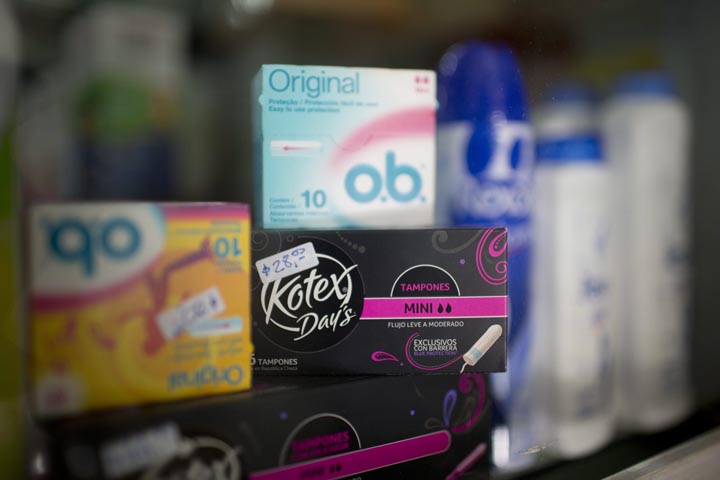TORONTO — Having your period may already be a pain, but buying the products needed to cope can also put the pinch on your wallet.

And to make matters worse, feminine hygiene products are subject to GST, while food, children’s clothing and other miscellaneous items such as contact lenses are not.
“Buying menstruation products is non-optional,” says Jill Piebiak, who set up a change.org petition lobbying the federal government to stop taxing feminine hygiene products. “These products are essential to normal public life in Canada for people with their periods. It’s not something that we choose to use, so we recognize that it’s a gender-based tax and that this tax is unfair and discriminatory.”
Since its launch Jan. 26, more than 45,000 people have signed the petition.
“Did you know that households across Canada are paying GST on menstrual hygiene products?” The page for No Tax on Tampons states. “According to the Government of Canada all menstrual hygiene products are considered a non-essential item or luxury.”
The group’s data estimates spending at $519,976,963 on menstruation products by Canadian women in 2014, resulting in approximately $36,398,387 in GST collected by the feds as “the result of an involuntary bodily function.”
“This specific tax is non-optional and only impacts one half of the population,” says Piebiak, who works in Toronto as an outreach coordinator for a not-for-profit organization. “It puts an unfair tax burden on people with a particular biological characteristic. “
The petition is in support of an act introduced by Irene Mathyssen, member of parliament from the riding of London—Fanshawe. In 2013 she introduced Bill C282, which proposes to amend the Excise Tax Act (feminine hygiene products) which would deem the products essential and exempt from GST.
A petition page on Mathyssen’s website states, “Charging GST on feminine hygiene products clearly only affects women and unfairly disadvantages women financially solely because of their reproductive role.”
Piebiak says the small group of advocates behind the petition “can’t take on tax law in Canada,” but she hopes to raise awareness of Bill C282, and urges people to make their support clear with their local elected officials.
“The Government of Canada will not table online petitions, so we’re working hard to remind people, providing the links, as much as we can to the hard copy of the petition in the format the government accepts,” says Piebiak. “So we can work on a strategy of tabling the bill in the future in the House of Commons and hopefully that will spur the will of the government to bring this private member’s bill forward for debate and hopefully it will be passed.”
A spokesman for Finance Canada said the department doesn’t comment on policy proposals, and suggested Canadian’s use the pre-budget online consultation website for feedback.
As the petition pushes forward, here is a list of some items that are exempt from GST, according to the Canada Revenue Agency.
– Incontinence products
– Diapers
– Testing strips
– Vitamins purchased by a manufacturer for use as ingredients in breakfast cereal
– Edible cake decorations packaged and sold as cake decorations
– Beer-making kits containing only the ingredients to make beer (yeast, hops etc.)
- Budget 2024 failed to spark ‘political reboot’ for Liberals, polling suggests
- Peel police chief met Sri Lankan officer a court says ‘participated’ in torture
- Wrong remains sent to ‘exhausted’ Canadian family after death on Cuba vacation
- Liberals having ‘very good’ budget talks with NDP, says Freeland




Comments